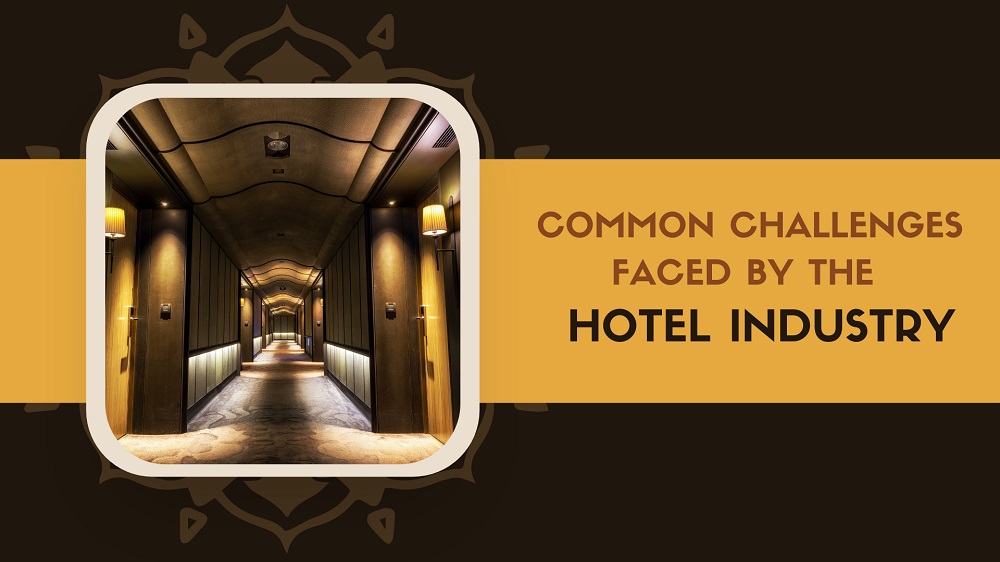Common Challenges Faced By the Hotel Industry

The hotel industry is a complex and ever-changing landscape. With new hotels popping up all the time, it can take a lot of work to stand out from the crowd. But, with the right strategy in place, your hotel can thrive. Here are some of the most common challenges the hotel industry faces and how to overcome them.
Also Read: –California Travel Guide-What to do in California
High Competition
The hotel industry is competitive for a variety of reasons. Hotels may have to lower room prices to stay competitive, which can lead to less revenue. Additionally, fewer customers may book rooms at a hotel that is perceived as being more expensive. Finally, a hotel trying to save money may provide a lower level of customer service, leading to decreased satisfaction.
High competition can be a challenge for hoteliers, but it can also be an opportunity. With so many hotels competing for business, standing out from the crowd is essential. This means offering unique experiences and amenities that guests cannot find elsewhere. It is also necessary to stay up-to-date on industry trends and to be able to anticipate the needs of guests. By constantly striving to be the best, hoteliers can ensure that their property remains competitive in the ever-changing landscape of the hotel industry.
Fluctuating Demand
The hotel industry is highly dependent on demand from travelers. When there is an increase in travel, hotels see a corresponding increase in business. However, hotels often have to adjust when travel decreases to remain profitable. This can include reducing staff, cutting back on amenities, or offering discounts to guests. Because of this, the hotel industry can be volatile and susceptible to changes in the economy.
Nonetheless, there are several ways to deal with fluctuating demand in the hotel industry. One way is to offer special rates or discounts during slower periods. Another way is to offer package deals that include other attractions in the area. Still another way is to create a loyalty program that rewards guests for returning during off-peak times. Hotels can encourage guests to visit when business is typically slower by being creative and flexible.
Affiliating with an established hotel brand is another way to stay on top of your game. It can help increase hotel occupancy rates by giving guests confidence in the quality of the accommodations. Additionally, it can provide access to marketing and operational resources that can help improve the overall guest experience. And finally, it can help build relationships with other hoteliers in the same brand, which can lead to increased business opportunities.
Rapidly Changing Business Environment
The hotel industry is facing a rapidly changing business environment. With the advent of new technologies and customers’ changing needs, hotels must adapt to stay ahead of the competition. For example, the internet has changed how customers book their hotel rooms and research their options. The rise of online travel agencies has made it easier for customers to find the best deals on hotel rooms. And the rise of mobile devices has made it easier for customers to book hotel rooms on the go.
To be a successful hotel professional, you must stay up-to-date on industry news and trends. This means reading industry publications, attending industry events, and networking with other hotel professionals. You should also always look for ways to improve your hotel’s operations. This could involve implementing new technology, streamlining processes, or developing innovative marketing campaigns. Lastly, it would help if you were flexible and adaptable. This means being willing to change your plans at a moment’s notice, whether due to a change in the market or a last-minute guest request.
Ever-rising Operation Costs
With global competition, hotels are constantly under pressure to keep their prices low while still providing a high level of service. However, the costs of operating a hotel can be very high, and this is one of the biggest challenges faced by the industry. Hotels have to deal with various costs, from labor to energy costs. They also have to maintain a high level of customer service, which can be costly in itself. In addition, hotels are often required to make significant investments in technology and infrastructure. These factors can contribute to high operation costs, which can be a considerable challenge for hoteliers.
The good news is that there are several ways to reduce operation costs, but it can be difficult. Many hotels are now turning to technology to help them reduce costs, such as using energy-efficient lighting and appliances and investing in automated systems. However, it is essential to remember that lowering costs should not come at the expense of customer service. Ultimately, finding the right balance between cost-cutting and customer satisfaction is the key to success in the hotel industry.
Conclusion
By understanding the challenges faced by the hotel industry, you can better determine which ones apply to your business. By taking steps to address these challenges, you can improve your chances of success.








